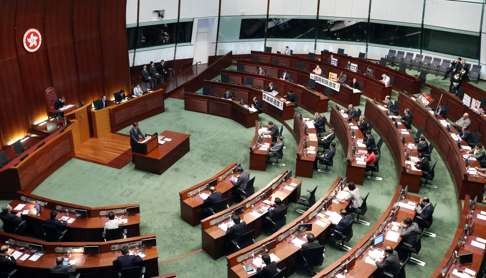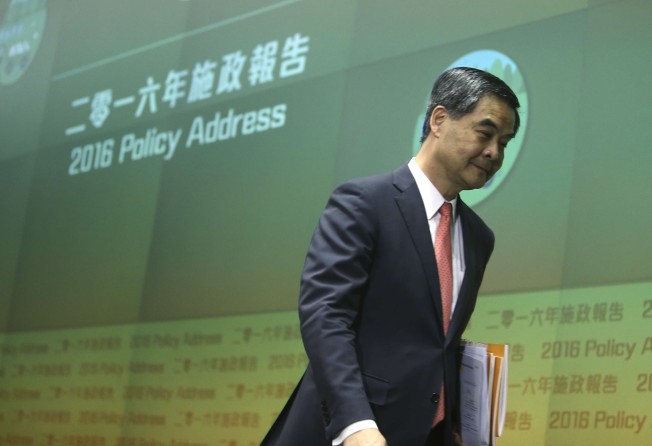
Why a chief executive who rises above party politics isn’t so bad
Alice Wu says while often seen as a handicap, the constitutional requirement that denies party support to Hong Kong’s leader may at the same time free him or her to forge common ground

Youth-led post-Occupy groups making their electoral debut at this year’s Legislative Council election are expected to shake up traditional battlegrounds. Established political parties have been busy, too, signalling tectonic shifts ahead of the September poll.
From the pro-establishment side, we saw the resignation of Starry Lee Wai-king, chairwoman of the Democratic Alliance for the Betterment and Progress of Hong Kong, from the Executive Council – a move widely seen as an attempt by the party to distance itself from the chief executive. On the other side of the political aisle, we have the Democratic Party’s very rare and very public support of the financial secretary’s budget. By doing so, it broke ranks with the rest of the pan-democrats.
These are carefully crafted moves. Contenders for Legco’s direct elections must outmanoeuvre competitors in the “largest remainder” proportional representation system, which gives smaller parties – and radical voices on the fringes – a disproportionally lower entry barrier than larger and better organised parties. Proportional representation systems encourage diversity. In theory at least, it is “good” – it requires the coexistence of different interests, opinions and convictions. But, in Hong Kong, it has also been instrumental in facilitating political polarisation.

There are no perfect systems, to be sure. And, in Hong Kong, we have a political operating system that is so complex that it’s fair to ask whether it “operates” at all. On top of it all, we have a chief executive who is constitutionally empowered to lead under an “executive-led” political structure while being denied party affiliation and, thus, political support. A workable executive-legislative relationship has yet to be found.
The chief executive is ‘above’ the ideological rigidity of the politics we find in the legislature
Perhaps our politics can be inspired by a video on congruent triangles made by Methodist College students that went viral last week. We have been functioning on a linear political spectrum, with the pro-establishment at one end and the pan-democrats at the other. That line has been lengthening and, as it extends, “governance” seems to have become more challenging. Consider, however, that the difficulties are perhaps because the office of the chief executive has been incorrectly plotted on that line.
The fact that the chief executive is bound, constitutionally, to have no political affiliation frees him or her from walking the tightrope of party politics. While triangulation has become a pejorative term in American politics, because it has been framed as betraying party principles and dignity, the office of the chief executive here may be perfectly positioned for it. The chief executive is bound by the Basic Law and “one country, two systems”, but he or she is not constrained by party manifestos. In that sense, the chief executive is “above” the ideological rigidity of the politics we find in the legislature.
While our legislators find little incentive to work with disagreeing opponents, the chief executive is best positioned to triangulate, and, in the words of Dick Morris, the man who coined the term, to “take the best from each party’s agenda, and come to a solution somewhere above the positions of each party”.
This does not mean the chief executive is above the law. It just means he or she is in a position to create room for common ground, for nurturing a political middle, and that, constitutionally, the office is designed to rise above changing political dynamics. It takes political skill to “take the best from each position; and move up to a third way”, which is the essence of triangulation. Such a chief executive can reshape our political landscape.
Alice Wu is a political consultant and a former associate director of the Asia Pacific Media Network at UCLA